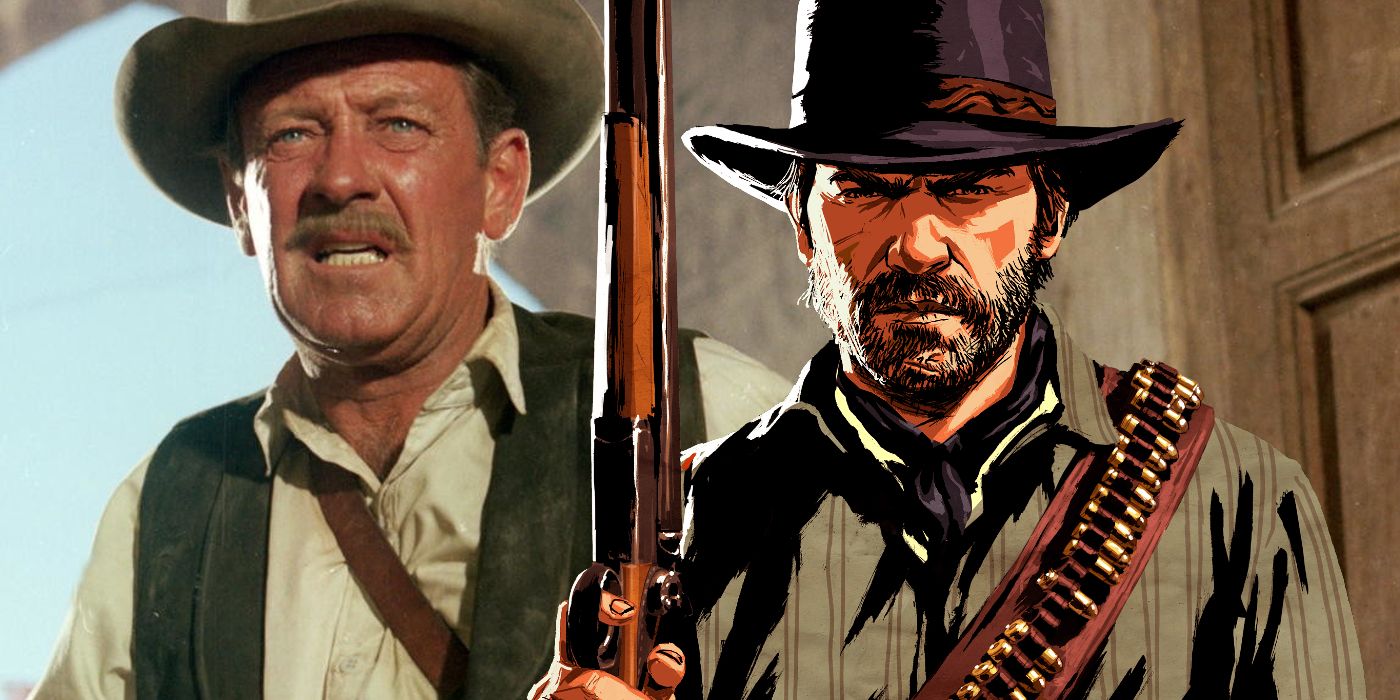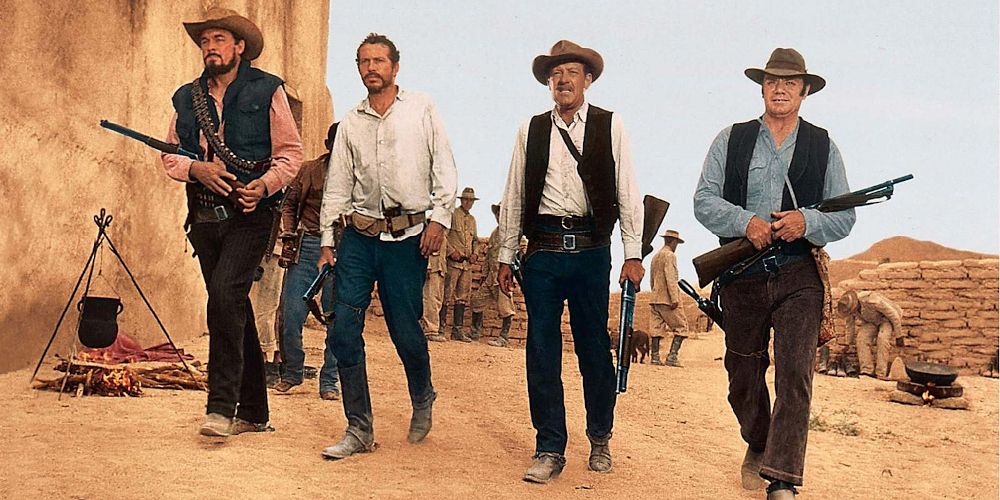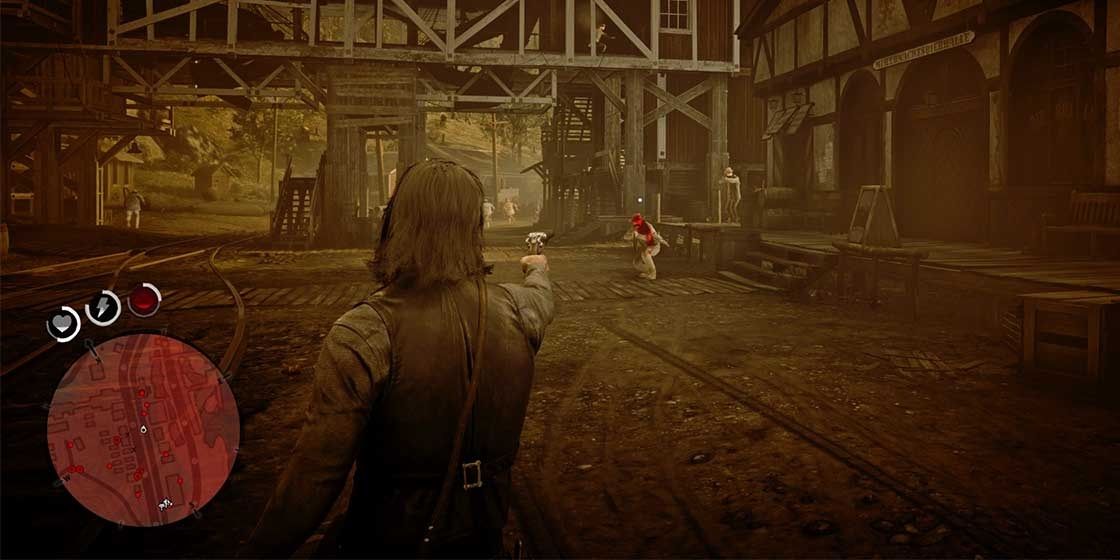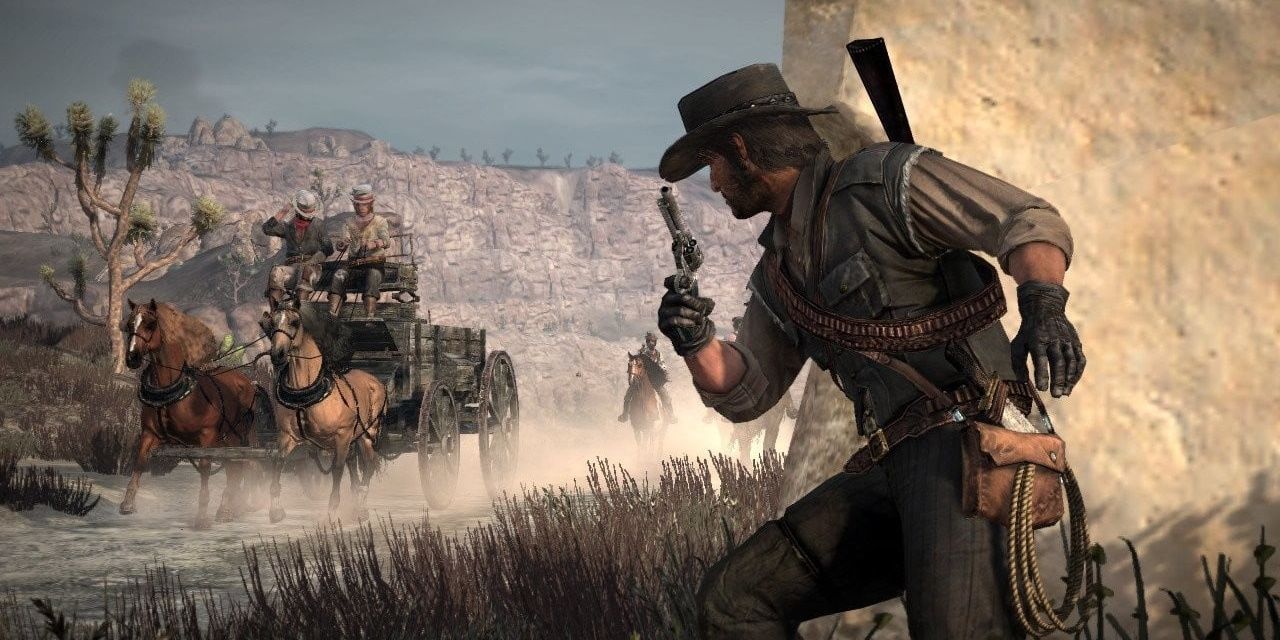Rockstar Games' Red Dead Redemption series is one of the most cinematic in gaming history, with both Red Dead Redemption and Red Dead Redemption 2 taking massive inspiration from classic Revisionist Westerns, particularly the works of Sam Peckinpah. Both titles feature many traditional Western elements, such as duels, cavalry charges, and heroic last stands, but the focus of each story is mournful and laden with brutality.
Red Dead Redemption and RDR2's story takes place in the dying days of the Old West, and depicts the encroaching technological advances of the early 20th century with a crushing sense of inevitability. At the same time, Rockstar does not approach the traditional Wild West with any degree of nostalgia; Red Dead Redemption 2 in particular highlights how the myths and legends of the Old West replaced reality in official history, as Arthur Morgan tracks down such famed gunslingers as Billy Midnight and Emmet Granger, only to discover they're living a sad and lonely existence, tantamount to Clint Eastwood's character of Will Munny in the Oscar-winning Unforgiven. There are heroic characters in Red Dead Redemption 2, but they're less "Yul Brynner in The Magnificent Seven" and "more John Wayne in True Grit." Sadness tinges even the more noble hearts in Rockstar's Old West, where every character, more or less, seeks their own personal redemption.
The same mantra is applied just as cruelly to both games' legendary outlaws. Although Red Dead Redemption 2 spends much of its time sorrowfully illustrating the decline of the Van Der Linde Gang, led by Dutch, and how their way of life is about to be crushed by civilization, it's made clear that the group's ignoble behavior isn't a recent development and has in fact been going on for a while. RDR2's Dutch casts himself as Jesse James the legend - a folk hero who robs from the rich and gives to the poor - when in reality he's always been Jesse James the killer, as unstable and violent as the version depicted by Brad Pitt in The Assassination of Jesse James by the Coward Robert Ford.
Red Dead Redemption Owes A Lot To Sam Peckinpah
Rockstar has long taken inspiration from films when it comes to crafting the studio's video games, and Red Dead Redemption's cinematic inspirations are further enshrined via the use of homage. Red Dead Redemption 2 borrows a particular shot from the aforementioned Assassination of Jesse James when the gang stages a train robbery in Lemoyne, and a later sequence involving Dutch and protagonist Arthur Morgan jumping into a river to avoid capture bears a striking resemblance to one from Butch Cassidy and the Sundance Kid. These are neat references in isolation, but also emblematic of the biggest influences behind both Red Dead Redemption and RDR2.
Arguably the greatest single influence on Red Dead Redemption, though, is Sam Peckinpah. Peckinpah's films were violent and controversial and grew increasingly so towards the end of his career. He initially started out as a scriptwriter and wrote multiple episodes of Gunsmoke before developing his own Western TV show, The Westerner. Peckinpah's TV Westerns were typical of the era, lacking many of the hallmarks that would distinguish the filmmaker on the silver screen, such as violence, morally ambiguous characters, and stories set during the closing moments of the Old West.
Although many filmmakers had adopted a revisionist approach towards the Western genre before Peckinpah's arrival (notably Fred Zinnemann in High Noon and John Ford in The Searchers), few had dwelled on the battles that took place as the Old West concluded. While not every Sam Peckinpah Western took place at the beginning of the 20th century, his two most acclaimed contributions towards the genre, Ride the High Country and The Wild Bunch, did. Both films share much in common with Red Dead Redemption, although the latter more so than the former. Whereas Ride the High Country acts as a dirge for the heroes of the Old West, depicting two former lawmen past their prime embarking on one last job, The Wild Bunch strikes a less melancholic tone, showcasing a gang of outlaws hunted by one of their former comrades, Deke Thornton (Robert Ryan), as they maintain a desperate bid to cling onto what little remains of the world they knew.
The latter film's premise informs John Marston's story in Red Dead Redemption, as he is tasked by the government to hunt down his old gang members in return for his freedom. Both The Wild Bunch and Red Dead Redemption also feature the Mexican Revolution as a key backdrop, with the former ending as Thornton joins the rebels, and the latter also showing Marston getting involved in revolutionary activity. The message behind The Wild Bunch is one of cyclical violence, and it's a sentiment echoed in Red Dead. Both the film and the video game dwell on the end of the Old West, but illustrate that the new era is no more civilized than the old one - a point hammered home to devastating effect in Red Dead Redemption's conclusion, as Marston is needlessly gunned down on his ranch by the spiteful and vindictive Edgar Ross.
The characters in Red Dead Redemption and RDR2 have many influences, but there are some notable similarities between protagonists Marston and Morgan and Ride the High Country's Steve Judd (Joel McCrea). In that film, Judd is a former lawman trying to survive in a modernizing world. He's a noble, incorruptible former marshal who does nothing wrong throughout the entire film, even though one could argue his lifetime of service would entitle him to behave less than virtuously. Judd is eventually betrayed by his partner, a fellow Old West lawman just as down on his luck, before perishing in a final shootout with a band of repulsive prospectors.
Now, neither John Marston nor Arthur Morgan were as morally infallible as Judd, but they were both good men deep down who were treated poorly by former friends, as well as a changing world, each meeting their own brutal end at the hands of some truly irredeemable villains. It reinforces that there's no romance to Rockstar's depiction of the Old West, and that the heroes of Red Dead Redemption have much in common with the tragically fated protagonists often present in classic Anti-Westerns.
How Spaghetti Westerns Influence RDR2's Combat
Of course, for all that Red Dead Redemption and Red Dead Redemption 2 embody of the elements of an Anti-Western, they aren't completely devoid of other Western elements either. Red Dead Redemption's Landon Ricketts fills the role of the aging gunslinger, boasting incredible skill with a revolver and having partaken in some legendary gunfights in his youth. Further still, although Red Dead Redemption 2 takes aim at the sensationalist biographers who exaggerated the exploits of notable Old West figures, all of the legendary gunslingers from the game are shown to be deadly accurate with a revolver, demonstrating skill not all that dissimilar to the protagonists of Sergio Leone's Dollars Trilogy. None are shown to be as vainglorious as English Bob from Unforgiven, for instance, nor are they as fraudulent. Their current circumstances may juxtapose with the myths of the era, but in actual gameplay, they're every bit as deadly as their reputations suggest.
These traditional Western tropes have an important role to fulfill in both Red Dead Redemption games' gameplay. The Dead Eye mechanic in particular feels as though it was pulled directly from one of Leone's Spaghetti Westerns, with time slowing down and the player being able to place their shots with deadly precision before unleashing a volley of gunfire in their opponent's direction. The decision to adopt the stylized approach of Leone's films when it comes to combat may seem at odds with the tone of Red Dead Redemption, but in a way, it's actually quite fitting. Like Peckinpah, Leone's films also challenged the idea of the conventional Western, to the point where the filmmaker cast Henry Fonda - an actor famous for his heroic characters - as the chief antagonist of Once Upon a Time in The West.
In that sense, the Revisionist Western also finds itself as a fundamental part of Red Dead Redemption's story and gameplay. It may seem tonally disparate to be gunning down enemies like a regular Lee Van Cleef when everything else about Red Dead screams historical accuracy, but it makes sense. Those Spaghetti Western elements present in Red Dead's gameplay provide a more exciting experience than anything more realistic would, and is illustrative of the subgenre's influence across both Red Dead Redemption titles.
Rockstar Found The Right Balance With Red Dead Redemption
As mentioned previously, films form an integral component of Rockstar's video games. Brian DePalma's Scarface was a notable influence on the 1980s-set Grand Theft Auto: Vice City, and GTA V's Michael De Santa also shares certain similarities with Robert DeNiro's Neil McAuley from Heat. Both the newer titles and elements of the classic Grand Theft Auto games did occasionally feel derivative of more compelling Hollywood material, though. The gameplay may always be innovative, but sometimes those cinematic parallels present in each GTA can feel oppressive, as if each title can't help but reference what is arguably its superior inspirations.
That's not the case with either Red Dead Redemption. While both games pay homage to and take direct inspiration from some of the finest Anti-Westerns ever released, Rockstar's Red Dead Redemption series stands on its own as a worthy contribution to the genre. Both games make excellent use of the late 19th and early 20th-century setting, telling sweeping, tragic tales of the death of the Old West with two compelling playable protagonists at their core. Red Dead Redemption's John Marston and Arthur Morgan are as rich and charismatic as any of the characters featured in Peckinpah or Leone's Westerns, and are rightly considered as being among the most iconic video game characters ever created.
Ultimately, the Red Dead Redemption series manages to channel its filmic influences to create something comparable to them, instead of something that's derivative. It balances the bleak violence of Peckinpah's later works with the beauty and style of Leone's Dollars Trilogy, leaving fans with an Anti-Western that's as gripping as it is unique.




